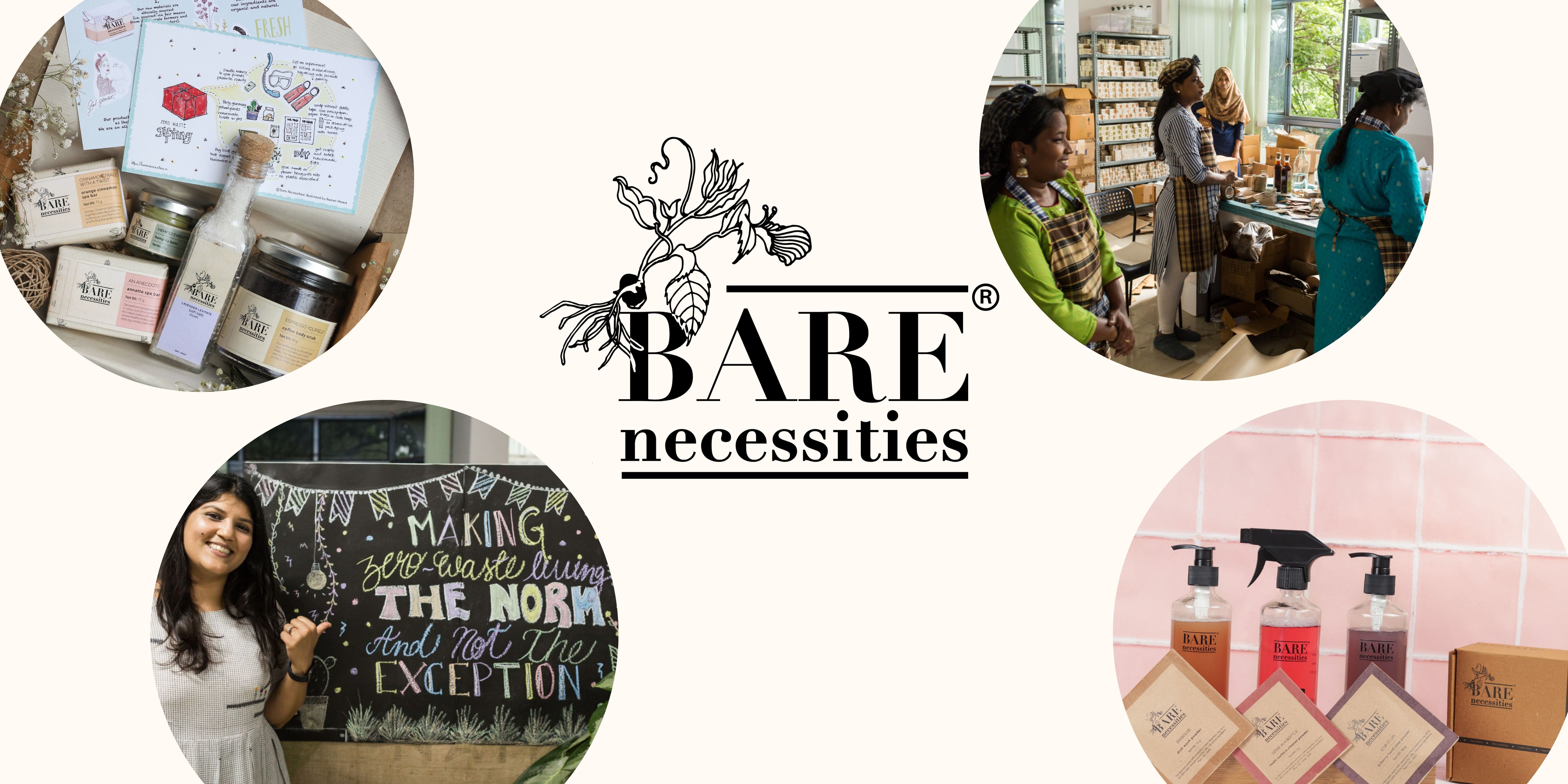

Bare Necessities Zero Waste Solutions Pvt. Ltd.

Karnataka, India
April 2024
Personal care products
Manufacturing
India
Bare Necessities provide sustainable alternatives to conventional plastic packaged personal care, home care and lifestyle products that take over 700 years to decompose, releasing harmful chemicals into our soil and water during the process. The release of microplastics further exacerbates the problem, severely disrupting the natural ecosystem. By consciously creating plastic free alternatives to everyday necessities, we strive to foster a waste and plastic free environment. Handcrafted by our women-run manufacturing team, our products use ethically, locally and naturally sourced ingredients. Our products have a responsible end-of-life and our packaging is either repurposable, recyclable and/or biodegradable. Through our holistic, two pronged approach of zero waste products and sustainability education, we tackle the waste crisis. We work to raise awareness about zero waste and sustainable lifestyles through our UNESCO recognized education initiative, Bare Learning.
Overall B Impact Score
Governance 9.5
Governance evaluates a company's overall mission, engagement around its social/environmental impact, ethics, and transparency. This section also evaluates the ability of a company to protect their mission and formally consider stakeholders in decision making through their corporate structure (e.g. benefit corporation) or corporate governing documents.
What is this? A company with an Impact Business Model is intentionally designed to create a specific positive outcome for one of its stakeholders - such as workers, community, environment, or customers.
Workers 44.8
Workers evaluates a company’s contributions to its employees’ financial security, health & safety, wellness, career development, and engagement & satisfaction. In addition, this section recognizes business models designed to benefit workers, such as companies that are at least 40% owned by non-executive employees and those that have workforce development programs to support individuals with barriers to employment.
What is this? A company with an Impact Business Model is intentionally designed to create a specific positive outcome for one of its stakeholders - such as workers, community, environment, or customers.
Community 27.2
Community evaluates a company’s engagement with and impact on the communities in which it operates, hires from, and sources from. Topics include diversity, equity & inclusion, economic impact, civic engagement, charitable giving, and supply chain management. In addition, this section recognizes business models that are designed to address specific community-oriented problems, such as poverty alleviation through fair trade sourcing or distribution via microenterprises, producer cooperative models, locally focused economic development, and formal charitable giving commitments.
Environment 17.1
Environment evaluates a company’s overall environmental management practices as well as its impact on the air, climate, water, land, and biodiversity. This includes the direct impact of a company’s operations and, when applicable its supply chain and distribution channels. This section also recognizes companies with environmentally innovative production processes and those that sell products or services that have a positive environmental impact. Some examples might include products and services that create renewable energy, reduce consumption or waste, conserve land or wildlife, provide less toxic alternatives to the market, or educate people about environmental problems.
Customers 4.4
Customers evaluates a company’s stewardship of its customers through the quality of its products and services, ethical marketing, data privacy and security, and feedback channels. In addition, this section recognizes products or services that are designed to address a particular social problem for or through its customers, such as health or educational products, arts & media products, serving underserved customers/clients, and services that improve the social impact of other businesses or organizations.